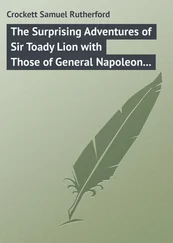His Most Christian Majesty, Iyasu, King of Kings, Ruler of Galla and Amhara, Defender of the Faith of Christ Crucified, let go of the general’s legs, took a step backwards and then began jumping up and down, clapping his hands and whooping with glee. The military men approached and congratulated their comrade in a more sober fashion, with shakes of the hand and pats on the shoulder while the priest offered a blessing and a prayer of gratitude.
General Nazet accepted their thanks with calm good grace and then said, ‘And now, Your Majesty, I have a favour to ask you. Once before I resigned my commission as the commander of your forces, but circumstances changed. My emperor and my country needed me and my conscience would never have allowed me to turn my back on my duty. So I put on my armour and I took up my sword once more. I was a soldier general and yours to command. But I am also a woman, Your Majesty, and as a woman I belong to another man. He let me go once to return to your service and now, with your permission, I wish to return to him.’
The boy looked at her. He frowned thoughtfully. ‘Is the man Captain Courtney?’ he asked.
‘Yes, Your Majesty,’ Judith Nazet replied.
‘The Englishman with the funny eyes that are coloured green, like leaves on a tree?’
‘Yes, Your Majesty. Do you remember, you welcomed him into the Order of the Golden Lion of Ethiopia as a reward for his bravery and service to our nation?’
‘Yes, I remember,’ said Iyasu, in an unexpectedly sad little voice. Then he asked, ‘Are you going to be a mummy and daddy?’ The boy emperor pursed his lips and twisted his mouth from side to side, trying to understand why he suddenly felt very unhappy and then said, ‘I wish I had a mummy and daddy. Maybe you and Captain Courtney can come and live in the palace and be like a mummy and daddy to me.’
‘Well now, Your Majesty, I really don’t think that …’ the cleric began. But the boy wasn’t listening. His full attention was directed at Judith Nazet who had crouched down on her haunches and was holding out her arms to him.
Iyasu went to her once again, and this time it was like a child to its mother as he laid his head on Judith’s shoulder and fell into her embrace. ‘There-there,’ she said. ‘Don’t you worry. Would you like to come and see Captain Courtney’s ship?’
The little boy nodded, wordlessly.
‘Maybe you can fire one of the cannons. That would be fun, wouldn’t it?’
There was another nod against Judith’s shoulder and then Iyasu lifted his face from the folds of her tunic, looked up at her and said, in a small voice, ‘You’re going to sail away with Captain Courtney, aren’t you?’
‘Yes, I am.’
‘Please don’t go,’ Iyasu asked and then, with desperate determination, cried out, ‘I command you not to go! You must obey me! You said you had to!’
Then the dam broke and, sobbing, he collapsed back onto her shoulder. The cleric took a step towards his young master, but Judith held up her hand. ‘One moment, Bishop. Let me deal with this.’
She let Iyasu cry a little longer until he was calmer and then dried his eyes and wiped his nose with her tunic. ‘Now,’ she said, ‘you know that I like you very much, don’t you, Your Majesty.’
‘Yes.’
‘And even if I go away, no matter how far, I will always like you and remember you. And just think, if I go to faraway countries like England or France I will be able to write and tell you all about the wonderful extraordinary things I see there.’
‘Do you promise to write to me?’
‘You have my word, as a soldier, Your Majesty.’
‘And if I go on Captain Courtney’s ship, will he let me fire a cannon?’
‘I will order him to do so. And since I’m a general and he’s only a captain he will have to obey me.’
The Emperor Iyasu pondered a moment, gave a thoughtful sigh and then turned away from Judith and said, ‘Bishop Fasilides, please be good enough to tell General Nazet that she has my permission to leave.’
 The armed East Indiaman Earl of Cumberland, named after the first governor of the Company of Merchants of London trading with the East Indies, was forty days out of Bombay with a hundred tons of saltpetre on board. She was bound for the Port of London where the saltpetre would be unloaded and taken to the royal armoury at Greenwich Palace, there to be mixed with sulphur and charcoal to provide gunpowder for His Majesty King Charles II of England’s army and navy. At the stern of the vessel, where the captain had his quarters, there were a number of other cabins for the ship’s senior officers and any important passengers that might be aboard. In one of these cabins a man was on his knees, his hands clasped together in prayer and his eyes closed as he sought permission to kill.
The armed East Indiaman Earl of Cumberland, named after the first governor of the Company of Merchants of London trading with the East Indies, was forty days out of Bombay with a hundred tons of saltpetre on board. She was bound for the Port of London where the saltpetre would be unloaded and taken to the royal armoury at Greenwich Palace, there to be mixed with sulphur and charcoal to provide gunpowder for His Majesty King Charles II of England’s army and navy. At the stern of the vessel, where the captain had his quarters, there were a number of other cabins for the ship’s senior officers and any important passengers that might be aboard. In one of these cabins a man was on his knees, his hands clasped together in prayer and his eyes closed as he sought permission to kill.
His name was William Pett. He had come aboard with official papers identifying him as a senior official of the East India Company and requiring any person engaged in Company business to provide him with whatever assistance he might require in the furtherance of his duties. Pett had approached Captain Rupert Goddings, master of the Earl of Cumberland, at a dinner hosted by Gerald Aungier, the first Governor of Bombay. He explained that his business in India was completed, hinting that it had been a delicate matter, involving negotiations with various Portuguese and Indian notables that he was not at liberty to discuss in any detail.
‘You understand the need for discretion, I’m sure,’ Pett said, in the tone of one man of the world to another.
Goddings was a large, ebullient, cocksure man with a splendidly upturned black moustache, whose years as a merchant captain had made him a considerable fortune. He was a perfectly competent seaman, and, if only because he lacked the imagination to be scared, possessed a degree of bravery. But not even his closest friends would have called him a great intellect. Now he adopted a suitably thoughtful expression and replied, ‘Quite so, quite so … Very easily offended, some of these Indians, and the Portuguese aren’t much better. It’s all that spicy food, in my view. Heats up the blood.’
‘I have, of course, sent regular reports home, summarizing the progress of our talks,’ Pett continued. ‘But now that they’re done it’s essential that I return home as soon as possible so as to discuss them in detail with my directors.’
‘Of course, quite understand. Vital to keep John Company fully informed. You’ll be wanting a berth on the Sausage, then, I dare say.’
For a moment, Pett had been caught unawares. ‘I’m sorry, Captain, the sausage? I don’t quite follow.’
Goddings had laughed. ‘By God, sir, I dare say you don’t! It’s Cumberland, don’t you see? They make sausages up there, so I’m told. I’m a Devonshire man myself. Anyway that’s why the Earl of Cumberland has always been known as the Sausage. Surprised you don’t know that, come to think of it, being a Company man.’
‘Well, I’ve always been more involved with financial and administrative functions than with nautical affairs. But to return to your kind invitation, yes, I would be very grateful of a berth. Of course, I have funds with which to pay for my passage. Would sixty guineas be sufficient?’
‘It certainly would,’ said Goddings, thinking to himself that the Company must really value Mr Pett if they were prepared to let him spend that kind of money. ‘Come aboard!’
Pett smiled, thinking to himself how easy it was going to be to earn the five hundred guineas he was being paid to kill Goddings. It was apparent, even on this brief encounter, that Goddings was prey to a trait that Pett had observed in many stupid people: a total unawareness of his own stupidity. This blissful ignorance led to a fatal excess of self-confidence. Goddings had, for example, believed that he could cuckold an elderly director of the Company by the brazenly public seduction of the old man’s much younger wife, and that he would get away with it. He was about to discover, a very short time before he departed this world, just how wrong he had been.
Читать дальше

 The armed East Indiaman Earl of Cumberland, named after the first governor of the Company of Merchants of London trading with the East Indies, was forty days out of Bombay with a hundred tons of saltpetre on board. She was bound for the Port of London where the saltpetre would be unloaded and taken to the royal armoury at Greenwich Palace, there to be mixed with sulphur and charcoal to provide gunpowder for His Majesty King Charles II of England’s army and navy. At the stern of the vessel, where the captain had his quarters, there were a number of other cabins for the ship’s senior officers and any important passengers that might be aboard. In one of these cabins a man was on his knees, his hands clasped together in prayer and his eyes closed as he sought permission to kill.
The armed East Indiaman Earl of Cumberland, named after the first governor of the Company of Merchants of London trading with the East Indies, was forty days out of Bombay with a hundred tons of saltpetre on board. She was bound for the Port of London where the saltpetre would be unloaded and taken to the royal armoury at Greenwich Palace, there to be mixed with sulphur and charcoal to provide gunpowder for His Majesty King Charles II of England’s army and navy. At the stern of the vessel, where the captain had his quarters, there were a number of other cabins for the ship’s senior officers and any important passengers that might be aboard. In one of these cabins a man was on his knees, his hands clasped together in prayer and his eyes closed as he sought permission to kill.










